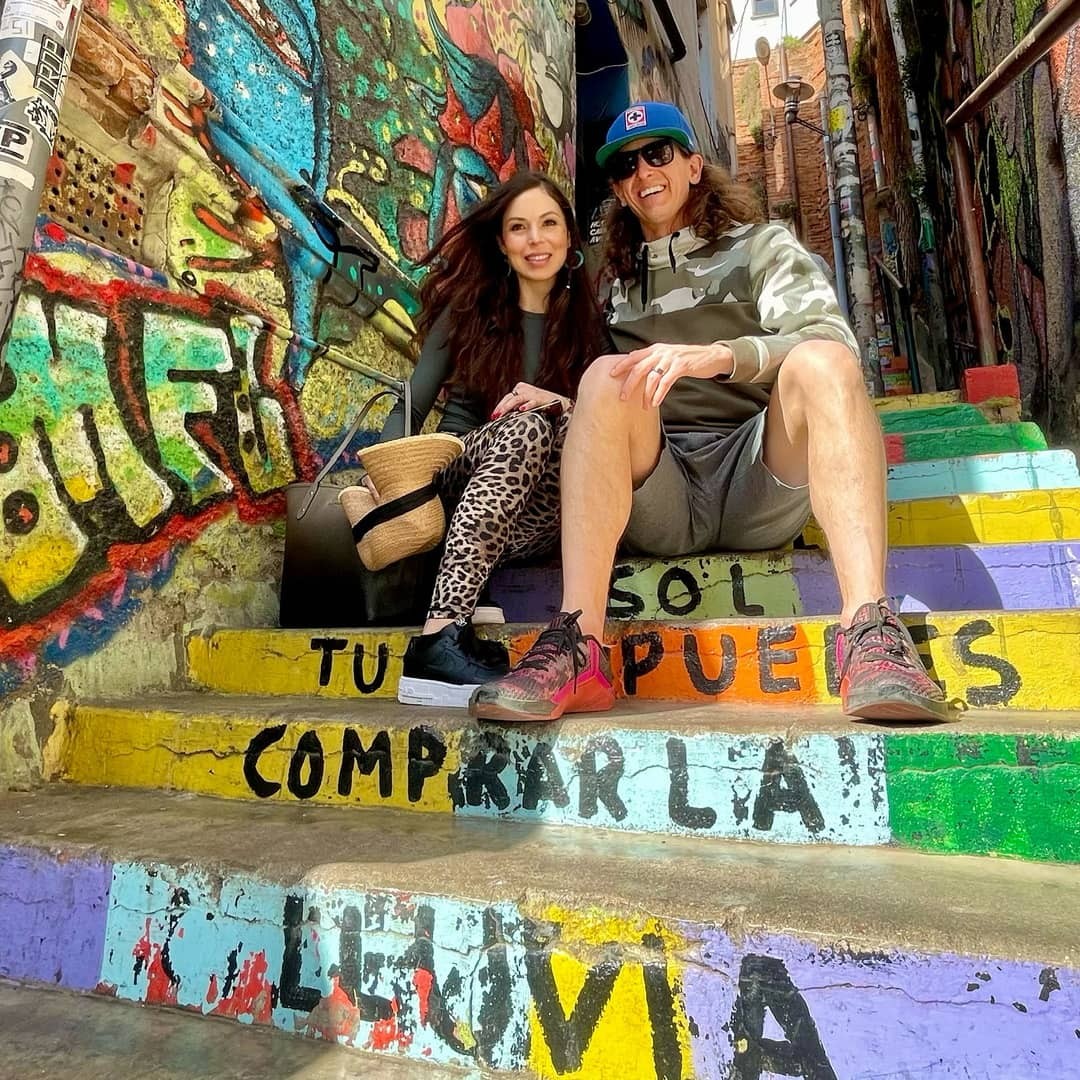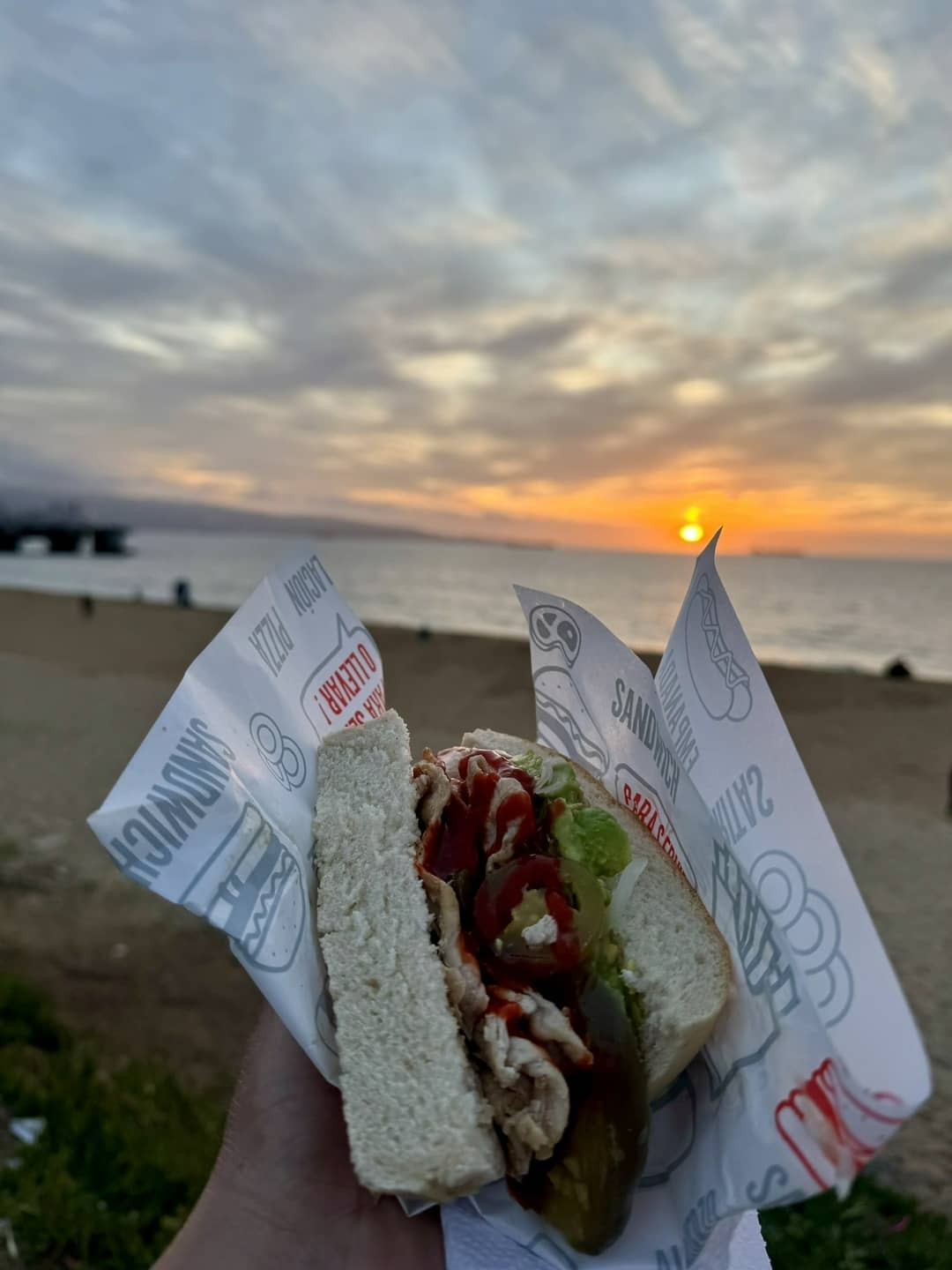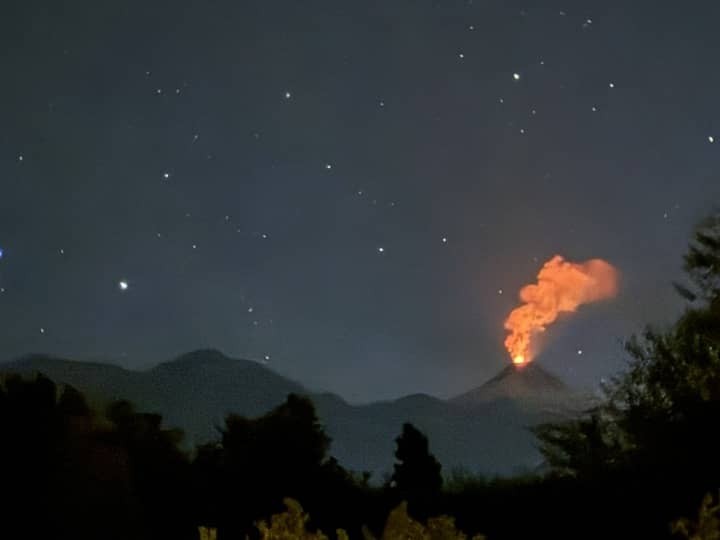Is Chile Safe To Travel To? Navigating safety concerns is crucial when planning an international trip. With TRAVELS.EDU.VN, discover how to explore Chile securely, focusing on informed decisions and proactive measures to ensure a memorable and safe experience. Embark on your adventure equipped with local insights and expert travel tips.
1. Understanding Safety in Chile: An Overview
Chile generally maintains a reputation as one of South America’s safer countries. However, like any travel destination, staying informed and prepared is essential for a secure and enjoyable trip. Crime rates, while relatively low compared to other Latin American nations, have seen some increases in urban areas. Tourists are generally safe if they take standard precautions against petty theft and remain aware of their surroundings.
1.1 Safety Perception vs. Reality
It’s important to distinguish between perceived safety and the actual risks on the ground. Chile has long been considered safe due to its political stability and low corruption rates. However, recent reports indicate a rise in petty crime, particularly in tourist hotspots. Visitors should stay updated on current events and local news to understand the present safety conditions.
1.2 Key Safety Concerns for Travelers
The primary safety concerns in Chile revolve around petty theft, particularly in crowded tourist areas and public transportation. Pickpocketing and bag-snatching are the most common issues. Violent crime is less frequent but can occur, especially in less-visited parts of major cities. Natural disasters, such as earthquakes and tsunamis, also pose potential risks.
2. Major Cities: Santiago and Valparaíso Safety
Santiago and Valparaíso, Chile’s two largest cities, offer rich cultural experiences but require increased vigilance due to higher population densities and tourist foot traffic. Understanding the specific safety dynamics of each city is vital for planning a secure visit.
2.1 Santiago: Navigating the Capital City
Santiago, the capital of Chile, is a bustling metropolis that attracts many tourists. While generally safe, certain areas require caution.
- Safe Neighborhoods: Areas like Las Condes, Providencia, and Vitacura are considered safer, upscale districts with plenty of amenities.
- Areas to Avoid: Exercise caution in El Centro (downtown), especially at night, and avoid poorly lit or less-traveled streets.
- Transportation Safety: The Metro de Santiago is efficient but can get crowded, making it a potential spot for pickpockets. Keep valuables secure.
- Precautions: Avoid displaying expensive jewelry or electronics, and always be aware of your surroundings.
2.2 Valparaíso: Exploring the Coastal City Safely
Valparaíso, known for its colorful houses and bohemian culture, presents different safety challenges.
- Tourist Areas: Stick to popular tourist areas like Cerro Concepción and Cerro Alegre.
- Risk Areas: Be cautious in less-visited areas, especially at night, due to the risk of theft and occasional muggings.
- General Safety Tips: Travel in groups, avoid walking alone at night, and keep your belongings secure.
- Tour Recommendations: Consider guided tours to navigate the city’s intricate streets safely.
 Valparaíso, Chile – Explore colorful streets safely with TRAVELS.EDU.VN
Valparaíso, Chile – Explore colorful streets safely with TRAVELS.EDU.VN
3. Regional Safety: From the Atacama Desert to Patagonia
Beyond the major cities, Chile offers diverse landscapes ranging from the arid Atacama Desert to the stunning Patagonia region. Each area presents unique safety considerations.
3.1 Northern Chile: Atacama Desert and Surroundings
The Atacama Desert is generally safe for tourists, but it’s essential to prepare for the harsh environment.
- Environmental Hazards: Protect yourself from the intense sun and extreme temperature variations.
- Remote Areas: Ensure your vehicle is well-maintained if driving through remote areas. Carry extra water and supplies.
- Tour Operators: Use reputable tour operators for excursions like stargazing tours or visits to geysers.
3.2 Central Chile: Wine Regions and Coastal Towns
Central Chile, including the wine regions and coastal towns, is relatively safe, but awareness is still important.
- Petty Theft: Watch out for pickpockets in crowded areas, especially during festivals or events.
- Driving Safety: Be cautious while driving on rural roads, particularly at night, as they may be poorly lit.
- Earthquake Preparedness: Know the local emergency procedures in case of an earthquake.
3.3 Southern Chile: Patagonia and Adventure Tourism
Patagonia is renowned for its outdoor adventures, but safety must be a priority.
- Weather Conditions: Be prepared for unpredictable and severe weather, including strong winds and sudden temperature drops.
- Hiking Safety: Inform someone of your hiking plans, carry a map and compass or GPS, and bring appropriate gear.
- Wildlife Encounters: Be aware of wildlife such as pumas, and follow park guidelines to minimize risks.
- Emergency Communication: Ensure you have a way to communicate in remote areas, such as a satellite phone.
4. Practical Safety Tips for All Travelers
Regardless of where you travel in Chile, certain safety practices are universally applicable. These tips can help you minimize risks and enhance your travel experience.
4.1 General Awareness and Common Sense
- Stay Alert: Pay attention to your surroundings, especially in crowded places and tourist areas.
- Avoid Risky Behavior: Refrain from excessive alcohol consumption or drug use.
- Trust Your Instincts: If a situation feels unsafe, remove yourself from it immediately.
4.2 Protecting Your Belongings
- Secure Valuables: Keep your passport, credit cards, and cash in a hidden money belt or secure pouch.
- Use Hotel Safes: Store valuables in hotel safes when not needed.
- Avoid Displaying Wealth: Don’t flaunt expensive jewelry or electronics.
4.3 Transportation Safety
- Reputable Taxis: Use registered taxis or ride-sharing services like Uber.
- Public Transport: Be aware of pickpockets on buses and the metro, especially during peak hours.
- Driving Precautions: Ensure your vehicle is in good condition, and be cautious on unfamiliar roads.
4.4 Emergency Preparedness
- Emergency Contacts: Save local emergency numbers in your phone (police, ambulance, fire department).
- Travel Insurance: Purchase comprehensive travel insurance that covers medical emergencies, theft, and trip cancellations.
- Medical Information: Carry a copy of your medical information, including allergies and medications.
5. Navigating Natural Disasters
Chile is prone to natural disasters, particularly earthquakes, tsunamis, and volcanic eruptions. Knowing how to respond in these situations can be life-saving.
5.1 Earthquakes: Preparedness and Response
- Stay Calm: During an earthquake, stay calm and avoid panic.
- Find Shelter: Seek shelter under a sturdy table or doorway, or move to an open area away from buildings.
- Post-Earthquake: Be aware of aftershocks and potential building collapses.
5.2 Tsunamis: Coastal Safety Measures
- Tsunami Warnings: Heed tsunami warnings and evacuate to higher ground immediately.
- Evacuation Routes: Familiarize yourself with local evacuation routes.
- Coastal Awareness: If you are near the coast and feel an earthquake, evacuate even without an official warning.
5.3 Volcanic Eruptions: Staying Informed
- Monitor Alerts: Stay updated on volcanic activity alerts from local authorities.
- Air Quality: Wear a mask if there is ash in the air to protect your lungs.
- Evacuation Plans: Know the evacuation plans if you are near an active volcano.
 Chilean food in Viña del Mar – Enjoying local cuisine safely while traveling in Chile with TRAVELS.EDU.VN
Chilean food in Viña del Mar – Enjoying local cuisine safely while traveling in Chile with TRAVELS.EDU.VN
6. Health and Medical Safety
Maintaining good health is crucial for a safe trip. Chile has a decent healthcare system, but it’s wise to be prepared for medical situations.
6.1 Vaccinations and Health Precautions
- Consult Your Doctor: Consult your doctor before traveling to Chile to ensure you have all necessary vaccinations.
- Travel Clinic: Visit a travel clinic for advice on health precautions specific to your itinerary.
- Medications: Carry all necessary medications, along with a copy of your prescriptions.
6.2 Accessing Medical Care
- Private Hospitals: In case of a medical emergency, private hospitals like Hospital Clínico Universidad de los Andes offer high-quality care.
- Emergency Numbers: Know the local emergency numbers for ambulance services (131).
- Travel Insurance: Ensure your travel insurance covers medical expenses and emergency evacuation.
6.3 Food and Water Safety
- Drinkable Water: Tap water in Chile is generally safe to drink, but bottled water is available if you prefer.
- Food Hygiene: Eat at reputable restaurants and avoid street food from vendors with questionable hygiene practices.
- Dietary Precautions: Be mindful of dietary restrictions and allergies, and communicate them clearly when ordering food.
7. Cultural Sensitivity and Local Laws
Respecting local customs and laws is vital for a smooth and safe travel experience.
7.1 Understanding Chilean Culture
- Greetings: Use formal greetings (e.g., “Buenos días,” “Buenas tardes”) when meeting people.
- Politeness: Chileans value politeness and respect. Avoid being overly assertive or confrontational.
- Tipping: Tipping is customary in restaurants (10%) and for certain services.
7.2 Adhering to Local Laws
- Drug Laws: Be aware of strict drug laws and avoid any involvement with illegal substances.
- Alcohol Regulations: Public drinking is generally prohibited in many areas.
- Respect for Authority: Cooperate with law enforcement officials and follow their instructions.
8. Leveraging TRAVELS.EDU.VN for a Safer Trip
TRAVELS.EDU.VN offers personalized support and resources to ensure a safer and more enjoyable trip to Chile.
8.1 Customized Travel Itineraries
TRAVELS.EDU.VN tailors travel itineraries to your preferences, prioritizing safety and comfort.
- Safe Accommodation: Recommending accommodations in secure neighborhoods.
- Reliable Transportation: Arranging reliable transportation options.
- Guided Tours: Providing access to vetted tour guides and excursions.
8.2 Real-Time Safety Updates
TRAVELS.EDU.VN provides real-time safety updates and alerts, keeping you informed about potential risks.
- Local News: Monitoring local news and events that may impact your safety.
- Emergency Contacts: Providing a list of essential emergency contacts and resources.
- Safety Guidelines: Offering up-to-date safety guidelines and tips.
8.3 24/7 Support
TRAVELS.EDU.VN offers 24/7 support to address any concerns or emergencies during your trip.
- Emergency Assistance: Providing immediate assistance in case of emergencies.
- Travel Advice: Offering expert travel advice and support.
- Customer Service: Ensuring prompt and reliable customer service.
9. First-Hand Experiences: Is Chile Safe?
Hearing from other travelers who have explored Chile can offer valuable insights into safety perceptions and practical experiences.
9.1 Travel Blogs and Forums
- Research: Read travel blogs and forums to get first-hand accounts of safety experiences in Chile.
- Ask Questions: Engage with travel communities to ask specific questions and get personalized advice.
- Consider Reviews: Look at reviews of tours, accommodations, and activities to gauge their safety and reliability.
9.2 Testimonials from TRAVELS.EDU.VN Clients
- Feedback: Read testimonials from TRAVELS.EDU.VN clients about their experiences traveling in Chile.
- Safety Assurance: Learn how TRAVELS.EDU.VN has helped travelers feel safe and secure during their trips.
- Personal Stories: Discover personal stories and insights from other travelers.
 Snowstorms and Avalanches in Chile – Stay safe during snowstorms in Chile with guidance from TRAVELS.EDU.VN
Snowstorms and Avalanches in Chile – Stay safe during snowstorms in Chile with guidance from TRAVELS.EDU.VN
10. Booking with TRAVELS.EDU.VN: Ensuring a Safe Journey
Booking your trip to Chile with TRAVELS.EDU.VN can significantly enhance your safety and overall travel experience.
10.1 Benefits of Booking with TRAVELS.EDU.VN
- Expertise: Benefit from our extensive knowledge and experience in planning safe and enjoyable trips.
- Customization: Enjoy personalized itineraries tailored to your safety preferences.
- Support: Receive 24/7 support and assistance throughout your journey.
10.2 Contact Information
Ready to plan your safe and memorable trip to Chile? Contact TRAVELS.EDU.VN today:
- Address: 123 Main St, Napa, CA 94559, United States
- WhatsApp: +1 (707) 257-5400
- Website: TRAVELS.EDU.VN
10.3 Call to Action
Contact TRAVELS.EDU.VN now to book your adventure and explore Chile with confidence! Let us help you create unforgettable memories while ensuring your safety and well-being.
FAQ: Addressing Common Safety Concerns
Q1: Is it safe to travel alone in Chile?
Traveling alone in Chile can be safe, especially in tourist-friendly areas. Exercise caution, particularly at night, and keep your belongings secure.
Q2: What are the safest neighborhoods in Santiago?
Las Condes, Providencia, and Vitacura are generally considered the safest neighborhoods in Santiago.
Q3: How can I protect myself from petty theft in Chile?
Keep valuables hidden, avoid displaying expensive items, and stay aware of your surroundings, especially in crowded areas.
Q4: Is the tap water safe to drink in Chile?
Yes, tap water in Chile is generally safe to drink, but bottled water is available if you prefer.
Q5: What should I do in case of an earthquake in Chile?
Stay calm, seek shelter under a sturdy table or doorway, and be aware of aftershocks.
Q6: How reliable is public transportation in Santiago?
Public transportation is reliable but can get crowded. Be cautious of pickpockets, especially during peak hours.
Q7: What emergency numbers should I know in Chile?
Police (Carabineros): 133, Medical Emergencies: 131, Fire Department: 132
Q8: Is it safe to drive in Chile?
Driving in Chile is generally safe, but be cautious on rural roads, particularly at night, as they may be poorly lit.
Q9: What kind of travel insurance should I get for Chile?
Get comprehensive travel insurance that covers medical emergencies, theft, and trip cancellations.
Q10: How can TRAVELS.EDU.VN help ensure my safety in Chile?
TRAVELS.EDU.VN provides customized travel itineraries, real-time safety updates, and 24/7 support to ensure a safer and more enjoyable trip.
By staying informed, prepared, and booking with a trusted travel partner like travels.edu.vn, you can confidently explore the beauty and culture of Chile.